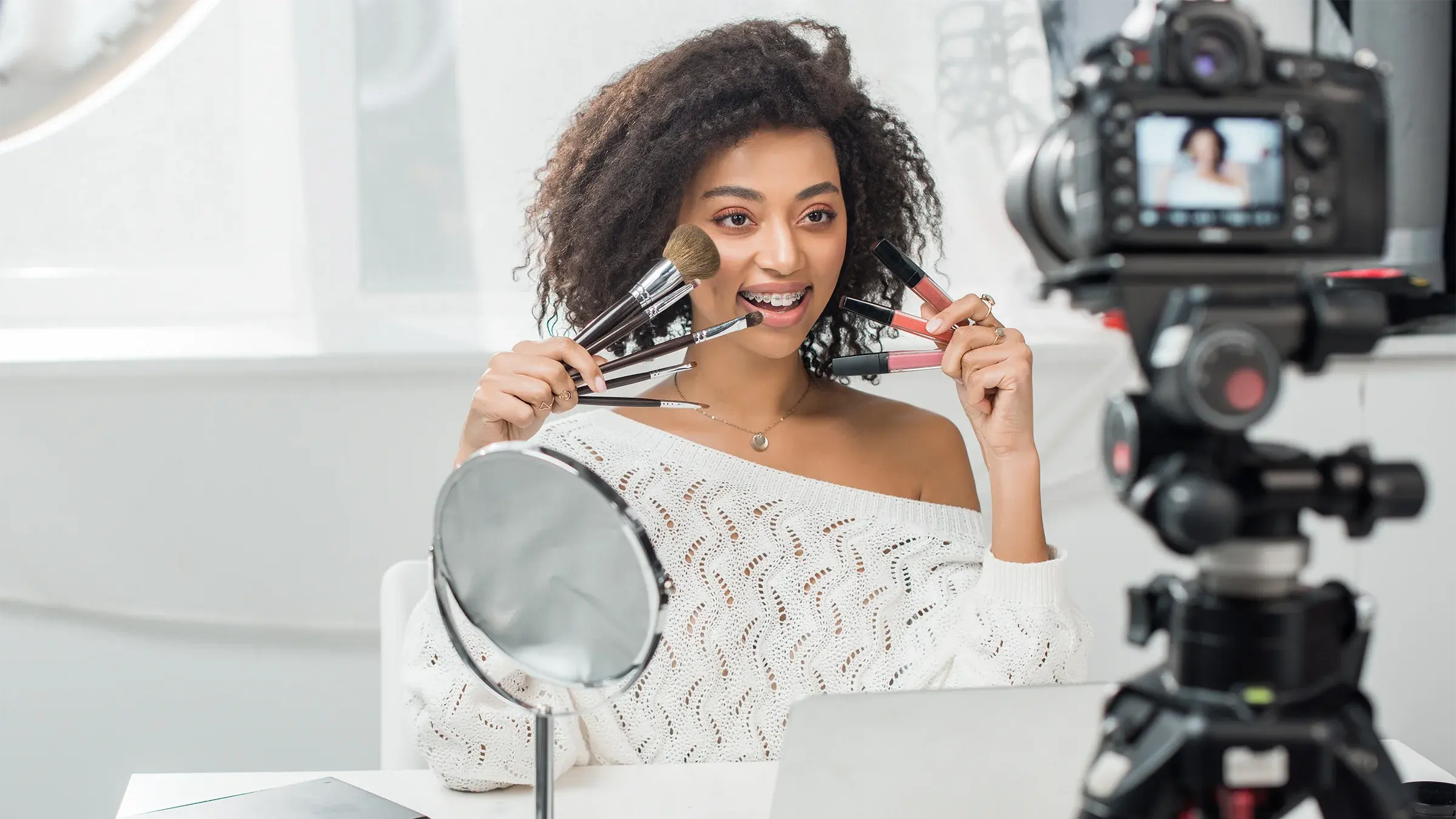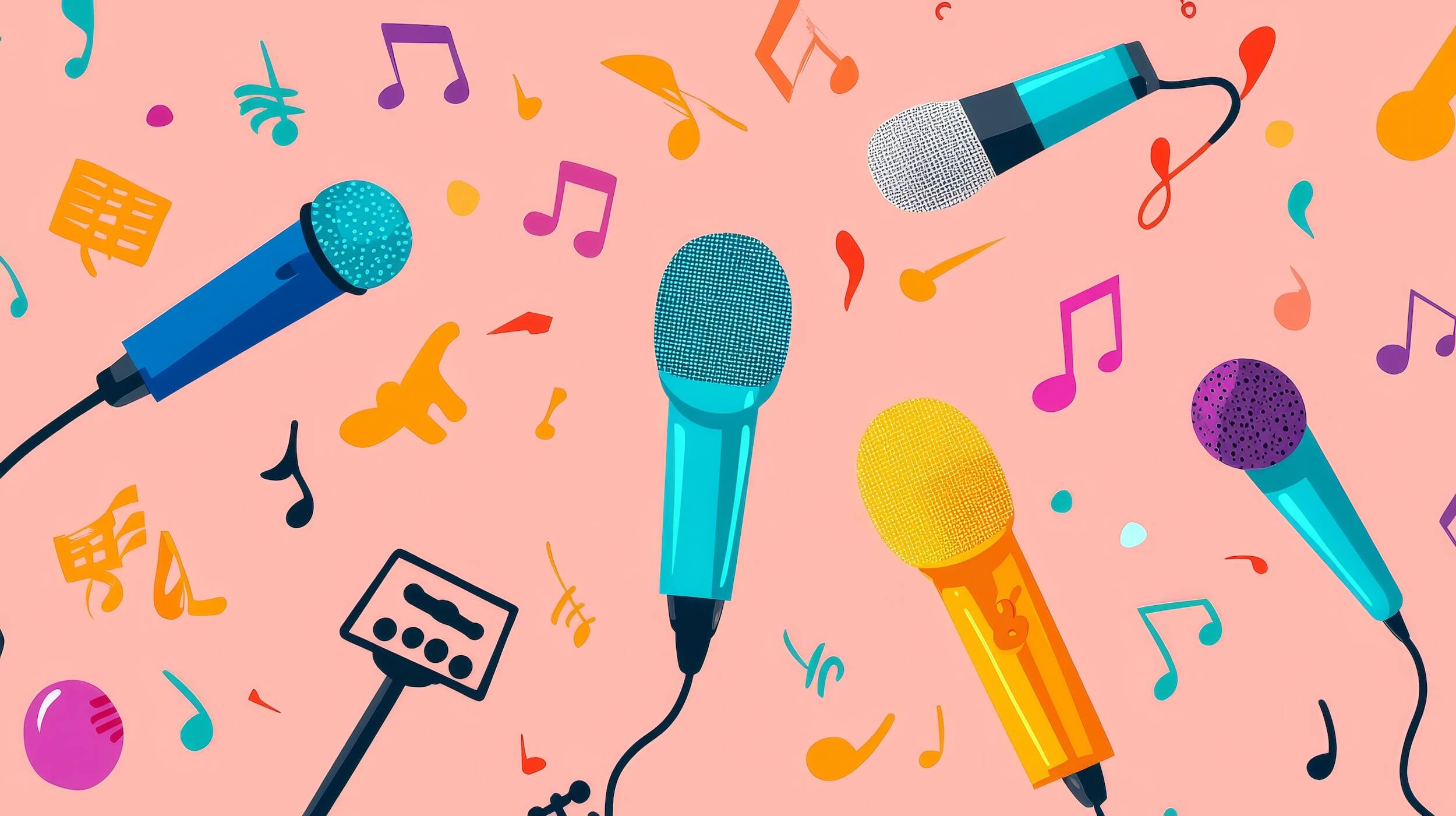Intro (00:00):
Welcome to the Taylor Ten. A fast-paced, 10 minute deep dive into the minds of those shaking up the marketing world, bringing you the sharpest insights, boldest ideas and breakthrough trends driving the industry forward. So tune in, get inspired, and stay ahead.
Naomi (00:18):
Hello everybody, I am Naomi Bala, and welcome back to the Taylor 10. I am here with Lamar Dawson. I've known Lamar, I guess almost a decade or so, not to date or so.
Lamar (00:31):
Yeah. Wow.
Naomi (00:31):
And Lamar is amazing, friend, colleague, and also just a purveyor of pop culture and all those things. His official title is a SiriusXM On Air Personality, and I'm really happy to join you. I know we only have 10 minutes, but we can just dig right into it. Well, welcome to The Taylor Ten.
Lamar (00:49):
Well, thank you for having me. I really appreciate it.
Naomi (00:51):
Love to just open up by saying how long have you considered yourself to be a reporter?
Lamar (00:56):
Yeah, we met, so back when I was working at Weber Shandwick, a different PR firm, and I was inspired to start writing on the side because I was pitching so many writers and bloggers and then influencers before that really became a thing about 10 years ago, and I was like, they're having more fun than I am. I'm begging them to come to my parties and write about my clients. Someone should be begging me. So I started to blog on the side. I started to blog about my interest, which is pop culture, music, nostalgia, things like that. So then people started asking me to write for them, like Billboard, GQ, Logo. Before I knew I had a whole side hustle on my own while still working in PR. So I've been doing this for about almost 10 years now. But I wouldn't consider myself a reporter because I didn't go to school for journalism. I'm not doing investigative pieces, things like that. I am talking about pop culture. I'm writing about it. I'm more of just a writer, a curator, personality.
Naomi (01:56):
Good. Good, good, good. And I love one thing that you said I want to touch back on. You said they were having more fun. How would you describe that? Is it that they were shaping the thoughts that people are talking about, they're shaping conversation? I'm just curious to just dig into what you kind of saw that kind of was like, Hmm, I want to tap into that skill a little bit more.
Lamar (02:15):
Well, quite frankly, since I was a kid, I've always dreamt of being on the radio. So it's so amazing that as you get to do it right now, so to me, it was fun that they were going to these really cool events and really cool parties, and we as PR people were throwing these really cool parties and brand activations, and we were inviting these people to go to it. And I was like, I want to be on the other side of that velvet rope, quite frankly. So that's what I meant by all the fun they were having.
Naomi (02:37):
I've always said this about you, you're going to be famous. I don't know what type of but you are. So that you manifested it this way is so really great and remarkable, and you've obviously put a lot of work into your approach. So how would you describe your interview style?
Lamar (02:52):
My interview style? I think about one person at a time when I'm speaking on air, when I'm writing what have you, I think about one person, and that's the fan of whoever I'm writing about. I think about the fans. What I do is for the fans. So even if I'm not in particular a fan of that person, I know their fans are going to read this and share this post about it, whatever, and I'm not writing from the beginning. There's already things they already know about them. They already know where they grew up. They already know their first album. They want to know the deep cuts. They want to know why you made that choice. They want to know what that lyric meant. They want to know why you use that color on this video. You know what I mean? They want to know those things.
(03:31):
So when you try to do all things and be everything to all people falling flat and being nothing to everyone, so if you try to keep one audience person in mind, it allows you to be laser focused on that. I actually got that from Tony Morrison when I started to really start writing and interviewing people. She would always talk about how she could tell when Black women were not written by Black women, they would explain too much. They would say, oh, she's wearing a bonnet, which is a silk head. A Black woman knows what a bonnet is. You wouldn't have to explain what that meant. So you can tell when it's not written by that person. So I try to get as inside the fandom, inside that person's mind as much as possible and write for just that one person. I also do a lot of guest appearances on CBS News, which helped train me for this as well.
(04:17):
I've done the TODAY Show in the past, which as you know, from working in media and working in PR, different shows have different viewers. TODAY Show, I'm on there talking about pop culture in a very different way. It's very like what I call bubble Gum pop, very TikTok Energy, like this movie's coming out, this movie's coming out. Zendaya is in it, dah, dah dah. Where on CBS News I'm talking about the Diddy trial, but they want to know what are the details. I know Diddy, I remember him from the nineties. I know of Cassie. They know what's going on. They're smart enough, but connect the dots for me. You know what I mean? Don't talk down to me. You know what I mean? I'm not an idiot, but give me the details. I know enough about what's going on. Treat your audience with respect. They're just as smart as you are.
(04:57):
So that kind of stuff goes into your preparation as well, and having fun with it and having a personality, having your own point of view on it too. I think some people, they are tuning in for you, working in radio, I always say that people once still listen to radio. I think a lot of people forget that people listen to the radio. We live in New York and we don't really have cars or what have you, but people do want company. They do want a companion. They do want a friend to tell them what's going on. So you are like a friend to them. So your friends have personalities and they have little quirks and little sayings and little things that they do. So bring that into your reporting, your narrative, and your storytelling and your writing as well.
Naomi (05:34):
No, I love that. I love that. And I had two questions, but I'm going to lump it together. It could probably be the same. I was going to ask, what was your biggest, who is your biggest media inspiration and why? And then my second question, and it could be the same answer for both or it could be separate, is what was your favorite sick at home from school talk show?
Lamar (05:55):
My favorite sick at home show, honestly, was Judge Mathis. I used to love to watch Judge Mathis and different in the People's Court, those judge shows, because I love true crime and judge and law kind of stuff. So that's a separate thing. But then media personalities. I was obsessed with MTV DJs in the nineties, so I used to love Carson Daley and Ananda Lewis, RAP, who recently passed away, BBellamy, all those guys on MTV, MTV Jams, Spring Break, all that stuff. But then on the radio, I loved Ryan. I love Ryan Seacrest. I love Steve Harvey. I always say, if I had a magic wand I'd have Steve Harvey and Ryan Seacrest's career. You know what I mean? I'll tell my agent they're going to have to quit at some point. I'm going to get one of their jobs.
Naomi (06:40):
If you could name one or two of your top interview subjects or one of the ones that you're like, oh, that was such a good conversation that you were like, this is such a good get, I never thought I would speak to this person.
Lamar (06:53):
That's so hard. I've interviewed so many wonderful people. I had a really fun viral moment with Halle Berry a few years ago. Long story short, I was on the red carpet at her movie premier, John Wick 2 in New York City, and she's walking down the red carpet and she and I are making eye contact throughout the carpet or whatever. I think she knows she's going to come talk to me at some point ahead of this talent walking down the carpet. A lot of the PR people walk down, see who's on the carpet, who they're going to bring the star to, and she's like, listen, guys, we're running late. She's not going to have time to talk to you. And I'm like, damn. You know what I mean? But then Halle is kind of rushed along the carpet and she sees me and one other person, we're the only two Black people on the carpet, okay, me and this woman next to me.
(07:35):
So the woman ushers her past me. Halle looks back and goes, I have to go see my brother over there. And she comes back and talks to me, gives me a hug, and at the time I'm working for Logo News, which is queer outlet over at Viacom, and she gives me an interview. The whole thing is captured on video. It's posted and goes viral on Twitter, and it became international news, A huge, huge story. It became a huge story regarding representation in media. How are there only two Black people on the carpet of this entire national huge movie franchise with John Wick? You know what I mean?
Naomi (08:09):
No, I remember that. I was so proud of you. And I was just like, yes. And it's funny, like everything happens for a reason, and it's also accessibility. It's like you are providing access for yourself, but she's also providing access to you. I know she knows the wealth of her power and the equity that her third party equity provides you guys. So that's like I definitely, I loved Halle Berry to begin with, but that also kind of gave me a different layer to her seeing the importance of that too. Cool. Cool. Okay. And then this is the last question, and I know this is probably going to be a very hard one for you, but if you had to nail it down, who would your dream interview subject be?
Lamar (08:49):
Oh my gosh. Well, I'm going to say Beyonce. I know
(08:54):
That's a given. Okay. I would want to talk to her about her strategy regarding this Renaissance, Cowboy Carter era. Once this whole act is over, I guess there's going to be three parts to the act. I'd want to almost do a reflection of the act and understand what the trilogy was about, and just unpack it all and put it all together and figure out what her strategy was. Because there were no music videos. We're kind of understanding the narrative she's spinning together. But I would love to connect the dots and just get inside of her world here, because it's a wonderful, interesting history that she's doing between Renaissance, which is dance and Black and queer now, history around country and unspoken heroes and pioneers there. So what's next? And then what propelled her to want to elevate these voices? Where did this come from.

.png)




.jpg)


.png)
.png)
.jpg)
.jpeg)
.jpg)

.jpg)
